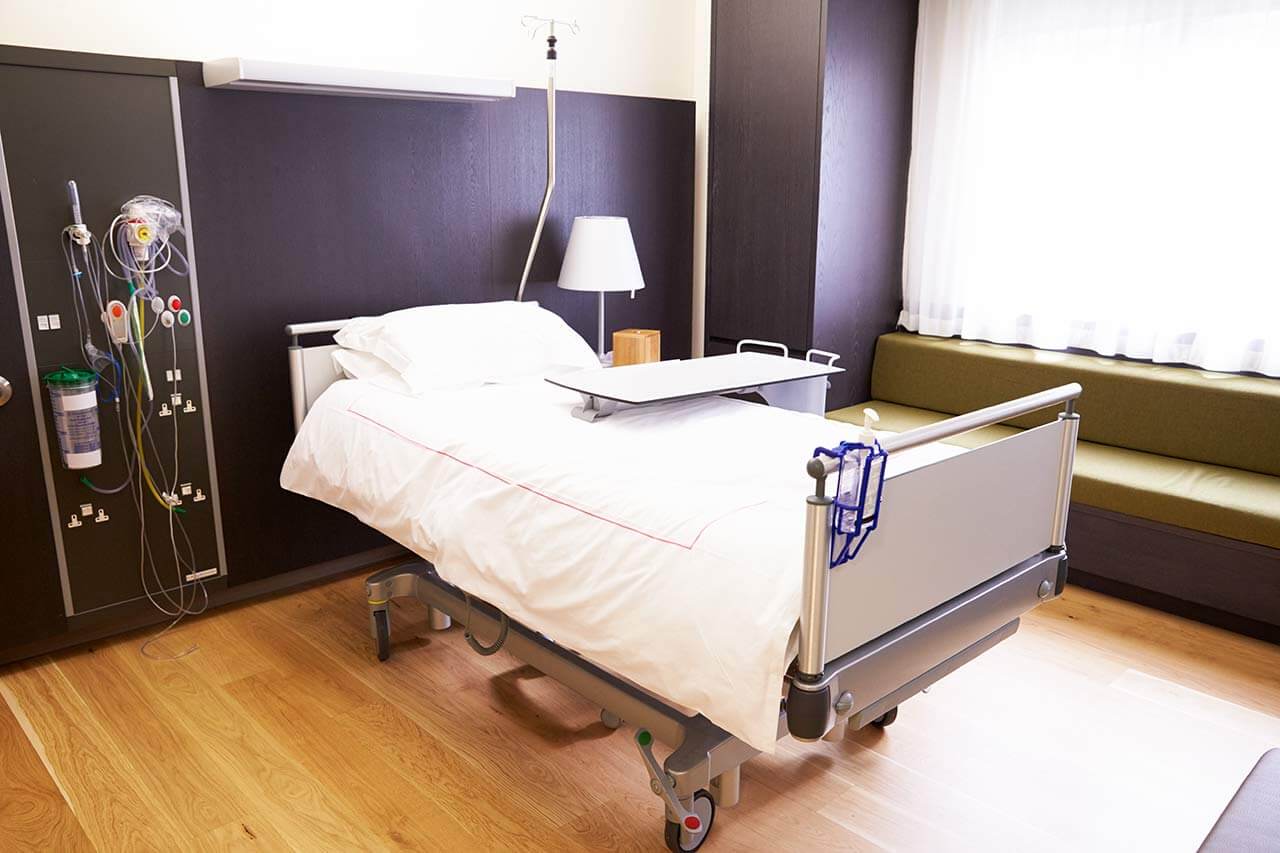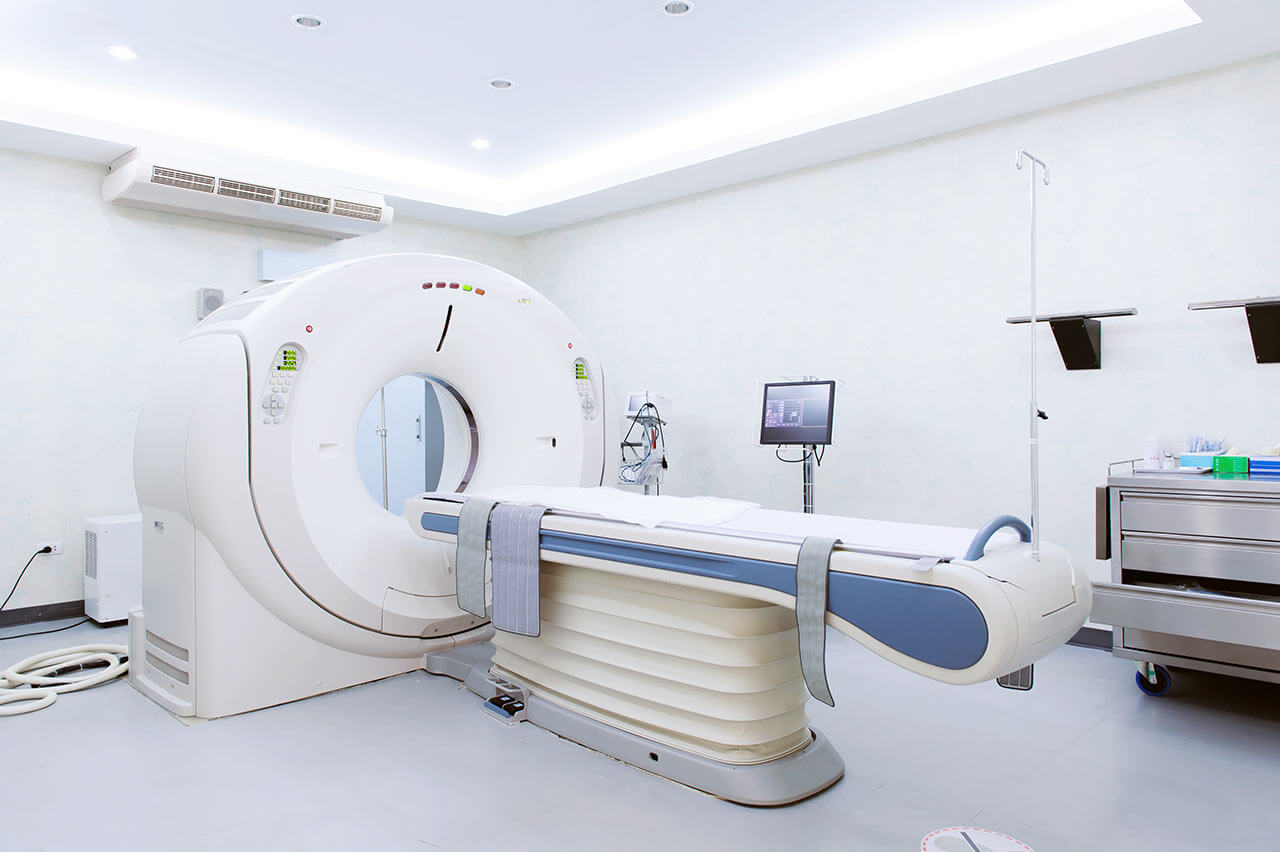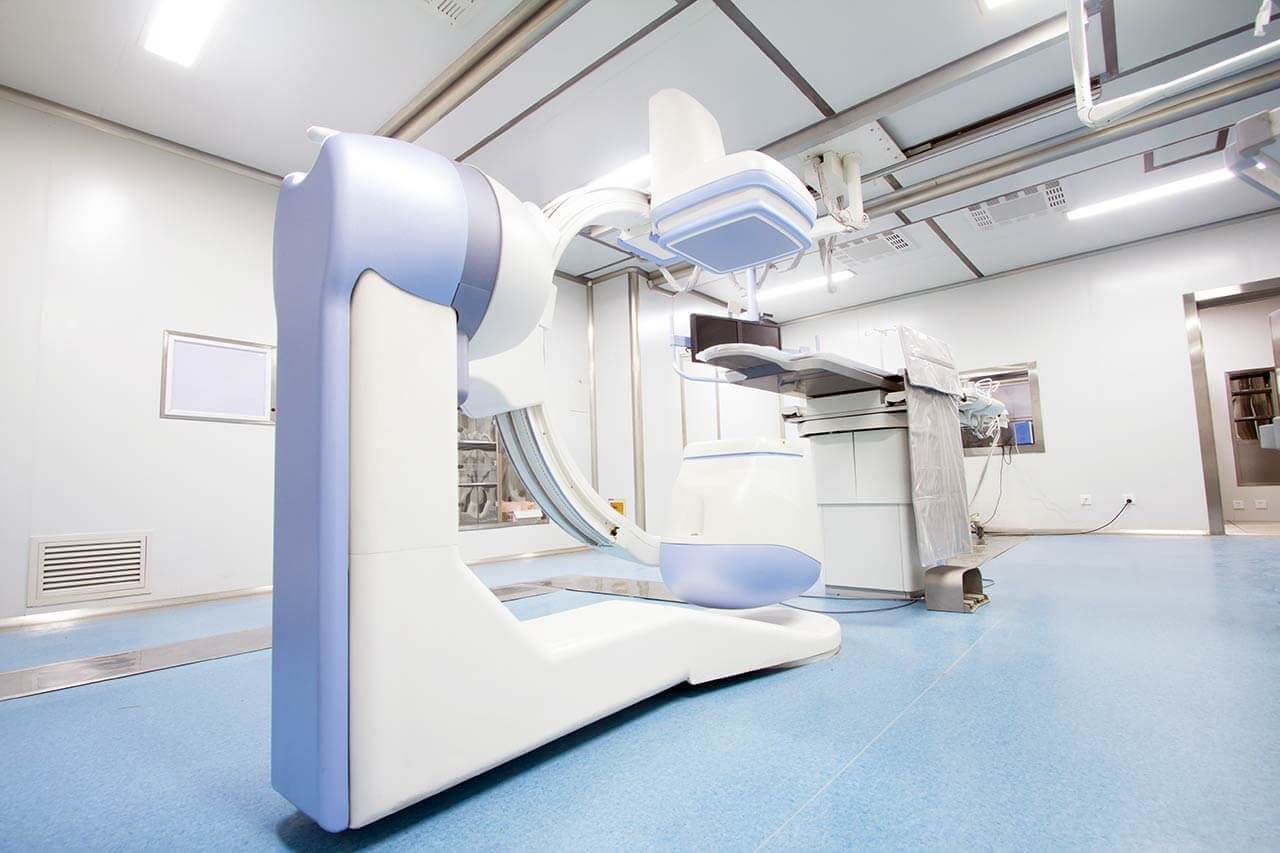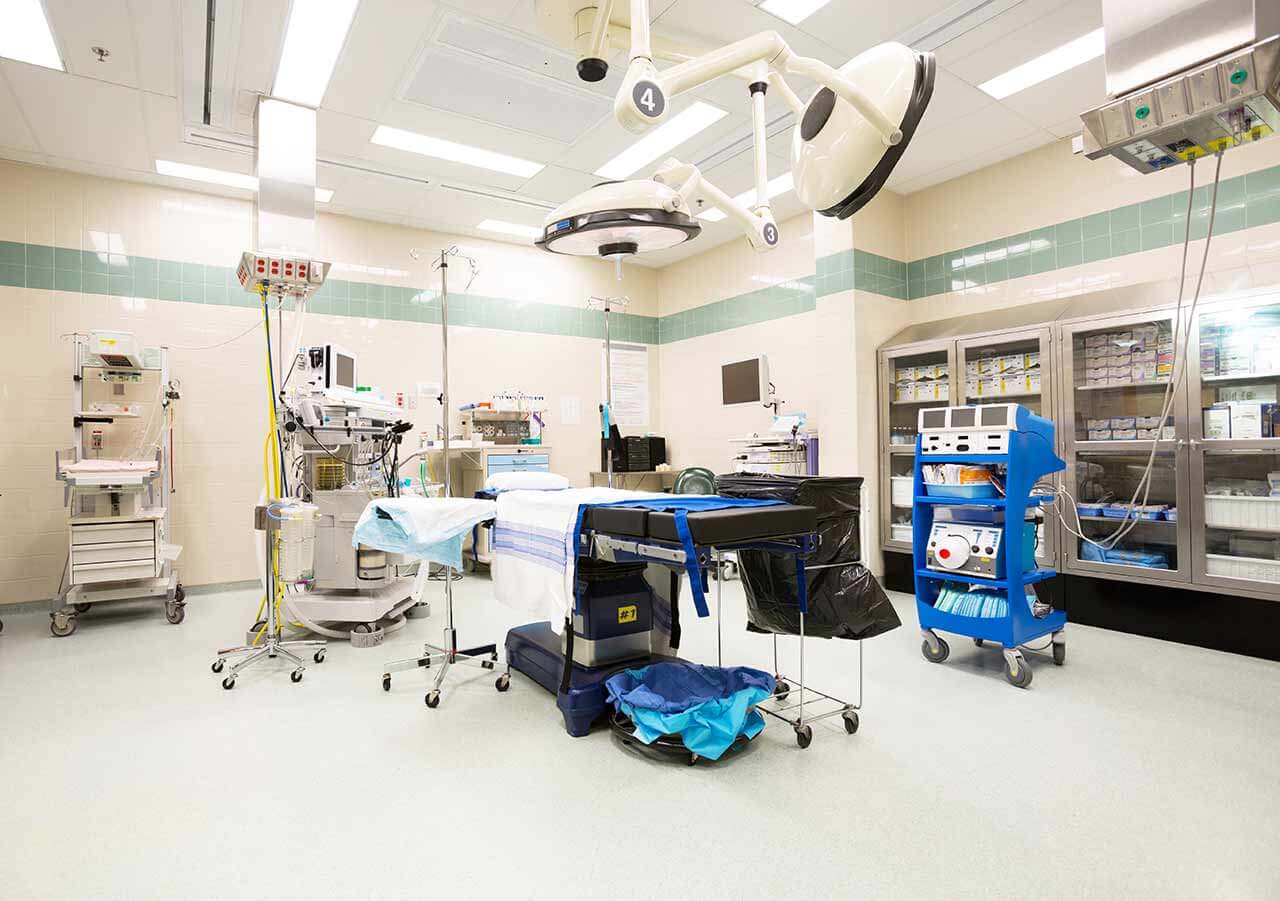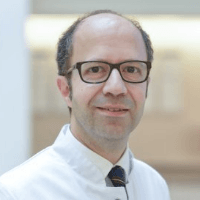
The program includes:
- Initial presentation in the clinic
- clinical history taking
- review of medical records
- physical examination
- laboratory tests:
- complete blood count
- biochemical analysis of blood
- inflammation indicators (CRP, ESR)
- indicators of blood coagulation
- immune status (IgE)
- skin scratch/prick tests
- differential diagnosis with other diseases of the skin
- nursing services
- consultation of related specialists
- treatment by chief physician and all leading experts
- explanation of individual treatment plan
Required documents
- Medical records
- Skin allergy testing (if available)
Service
You may also book:
 BookingHealth Price from:
BookingHealth Price from:
About the department
The Department of Adult and Pediatric Dermatology, Allergology at the Charite University Hospital Berlin provides comprehensive consultations, high-precision diagnostics, and effective treatment of a full range of skin diseases and its appendages. The department's specialists are also competent in the treatment of allergic skin manifestations and sexually transmitted diseases. The department's team of doctors is particularly interested in providing qualified medical care in accordance with international medical standards for patients with benign and malignant skin tumors, general dermatological diseases, autoimmune dermatological diseases, acne, and chronic non-healing wounds. The medical facility has also formed a qualified team of pediatric dermatologists who specialize in the treatment of autoimmune skin diseases, rare hereditary skin diseases, neoplasms, and chronic inflammatory skin diseases in young patients. The department's services include a variety of aesthetic dermatology procedures such as wrinkle treatment with Botox, hyaluronic acid and platelet-rich plasma injections, peels, laser procedures, microneedling, and photodynamic therapy. The physicians work according to current clinical protocols and standards of the German Dermatological Society (DDG). The Head Physician of the department is Prof. Dr. med. Kamran Ghoreschi.
The department houses a highly specialized Skin Cancer Center certified by the German Cancer Society (DKG). The center holds weekly tumor boards, where dermatologists, together with doctors of related specialties (oncologists, radiation therapists, and other experts), analyze each clinical case and develop an optimal treatment plan for the patient, taking into account the stage of the oncological process and the results of the preliminary diagnostic evaluation. The department's doctors have many years of experience in the treatment of malignant melanoma, basal cell carcinoma, squamous cell carcinoma, cutaneous lymphoma, and rare skin tumors (Merkel cell carcinoma, Kaposi's sarcoma). In most cases, patients with skin cancer receive multimodal therapy, which combines surgery to remove the tumor, drug therapy, and local therapeutic procedures. The gold standard for surgical treatment of malignant skin tumors is Mohs micrographic surgery. The procedure is performed under local anesthesia, often on an outpatient basis. The risk of recurrence after this surgery is virtually zero. Reconstructive plastic surgery can also be performed after resection of the malignant neoplasm, if needed. If clinically indicated, the treatment regimen may also include systemic therapies such as targeted therapy, chemotherapy, or immunotherapy.
An important part of the department's daily work is the treatment of autoimmune skin diseases. Patients with psoriasis, collagenosis, vasculitis, bullous dermatoses, and lichen planus regularly seek medical attention here. If some of the above pathologies are suspected, a comprehensive diagnostic evaluation is performed, including laboratory tests, histologic examination, direct and/or indirect immunofluorescence, and provocation tests. The attending physician will then begin to develop a treatment plan. Depending on the diagnosis and severity of the pathological process, local treatment with ointments, gels, or creams, systemic drug therapy, intravenous immunoglobulin infusions, extracorporeal photopheresis, and other therapeutic procedures are used.
The department provides qualified medical care for children and adolescents with skin diseases such as autoimmune dermatoses, rare hereditary skin diseases, benign and malignant skin tumors, and chronic inflammatory skin diseases. Young patients are treated in a specialized outpatient clinic. Pediatric dermatology also offers immunosuppressive therapy for graft-versus-host disease and immunodeficiency disorders. Children receive drug therapy, but if a skin neoplasm is found, surgical resection may be necessary.
Another important clinical specialty is allergology. The department's physicians have excellent expertise in the treatment of atopic dermatitis, food intolerance, drug allergy, allergic rhinitis, contact dermatitis, insect sting allergy, urticaria, mastocytosis, angioedema, and other allergic conditions. To treat allergic reactions, the department's specialists use various effective methods such as drug therapy (including biological drugs), phototherapy, diet therapy, and allergen-specific immunotherapy.
The major clinical activities of the department include:
- Dermatology
- Diagnostics and treatment of malignant skin tumors
- Malignant melanomas
- Basal cell carcinomas
- Squamous cell carcinomas
- Cutaneous lymphomas
- Rare skin tumors: Merkel cell carcinomas and Kaposi's sarcoma
- Atypical fibroxanthoma
- Bowen's disease
- Dermatofibrosarcoma protuberans
- Extramammary Paget's disease
- Angiosarcoma
- Diagnostics and treatment of benign skin tumors
- Cysts
- Lipomas
- Rhinophyma
- Warts
- Condylomas
- Diagnostics and treatment of autoimmune skin diseases
- Psoriasis
- Collagenosis
- Vasculitis
- Blistering dermatoses
- Lichen planus
- Diagnostics and treatment of acne
- Diagnostics and treatment of nail diseases
- Diagnostics and treatment of hair diseases
- Alopecia areata
- Scarring alopecia
- Hair loss due to chemotherapy
- Alopecia in children
- Diagnostics and treatment of skin diseases in children
- Autoimmune diseases
- Systemic scleroderma
- Systemic lupus erythematosus
- Bullous skin diseases
- Rare hereditary skin diseases
- Ichthyosis
- Epidermolysis bullosa
- Immunodeficiency disorders
- Syndromic diseases
- Skin tumors
- Skin tumors of unknown genesis
- Langerhans cell histiocytosis
- Chronic inflammatory skin diseases
- Psoriasis
- Lichen planus
- Lichen sclerosus
- Pityriasis lichenoides
- Graft-versus-host disease
- Autoimmune diseases
- Diagnostics and treatment of varicose veins
- Diagnostics and treatment of chronic non-healing wounds
- Diagnostics and treatment of sexually transmitted diseases
- Genital warts
- Syphilis
- Gonorrhea
- Chlamydia
- Genital and anogenital herpes
- Scar revision
- Hypertrophic scars
- Keloid scars
- Fire and steam burn scars
- Acne scars and other atrophic scars
- Diagnostics and treatment of malignant skin tumors
- Allergology
- Diagnostics and treatment of allergic diseases
- Atopic dermatitis
- Food intolerance
- Drug allergy
- Allergic rhinitis
- Contact dermatitis
- Insect sting allergy
- Urticaria
- Mastocytosis
- Angioedema
- Diagnostics and treatment of allergic diseases
- Diagnostics and treatment of other skin conditions and allergic diseases
The range of therapeutic services provided by the department includes the following:
- Dermatology
- Conservatie treatment
- Drug therapy: tablet medicines, injections, infusions, and local therapy with ointments, gels, and creams
- Light therapy
- Extracorporeal photopheresis
- Cryotherapy
- Laser therapy
- Vacuum therapy
- Compression therapy
- Endovascular laser coagulation, VNUS Closure Fast procedure, and sclerotherapy for the treatment of varicose veins
- Surgical treatment
- Mohs micrographic surgery for malignant skin tumors
- Microsurgical procedures for benign skin tumors
- Microsurgical procedures for acne removal
- Conservatie treatment
- Allergology
- Drug therapy, including treatment with biological drugs
- Phototherapy
- Diet therapy
- Allergen-specific immunotherapy (ASIT)
- Other treatment methods
Curriculum vitae
Higher Education, Postgraduate Training, and Professional Career
- 2018 Invitation to the position of W3 Professor in Dermatology, Venereology, and Allergology at the Charite; Head Physician, Department of Adult and Pediatric Dermatology, Allergology, Charite University Hospital Berlin.
- 2018 Additional qualification in Drug Tumor Therapy.
- 2017 Invitation to the position of W3 Professor in Dermatology, Allergology, and Immunology, Eberhard Karl University of Tuebingen.
- 2014 Managing Senior Physician, Department of Dermatology, University Hospital Tuebingen.
- 2011 Habilitation and Venia legendi in Dermatology, Eberhard Karl University Tuebingen.
- 2011 Senior Physician, Department of Dermatology, University Hospital Tuebingen.
- 2008 ‐ 2011 Visiting Research Fellow (Postdoctoral Fellow), National Institutes of Health (NIH), National Institute of Arthritis and Musculoskeletal and Skin Diseases (NIAMS), Bethesda, MD, USA.
- 2003 - 2008 Research Fellow and Physician, Department of Dermatology, University Hospital Tuebingen.
- 2008 Additional qualification in Allergology.
- 2007 Certified Research Fellow and Research Project Manager, CenTrial, Tuebingen.
- 2006 Board certification in Dermatology and Venereology.
- 2001 Thesis defense, summa cum laude, Ludwig Maximilian University of Munich.
- 2000 - 2002 Research Fellow, Department of Dermatology, Ludwig Maximilian University of Munich.
- 2000 Medical license.
- 1999 Internship in Immunohematology, Leiden University, the Netherlands.
- 1998 - 1999 Internship, Department of Dermatology, University Hospital of the Ludwig Maximilian University of Munich.
- 1998 Final state exam and partial admission to medical practice.
- 1991 - 1998 Medical studies, Ludwig Maximilian University of Munich.
Clinical and Research Interests
- Treatment of inflammatory skin diseases.
- Treatment of autoimmune skin diseases and allergies.
- Clinical oncology.
- Light therapy in the treatment of dermatological diseases.
- Translational immunotherapy.
- Molecular immunology, differentiation of T cells and dendritic cells, JAK-STAT cytokine signaling pathways.
Prizes, Awards, and Honors
- 2014 Paul Langerhans Award from the Dermatological Research Working Group (ADF).
- 2011 Best Paper of the Year Award in Cytokine Biology, National Institutes of Health (NIH), Food and Drug Administration (FDA).
- 2006 Theodor Nasemann Fellowship.
- 2004 Dr. Ernst Wiethoff Translational Research Award.
Memberships in Professional Societies and Organizations
- German Dermatological Society (DDG).
- German STI Society (DSTIG).
- European Academy of Dermatology and Venereology (EADV).
- European Society for Dermatological Research (ESDR).
- Dermatological Research Working Group (ADF).
Photo of the doctor: (c) Charité – Universitätsmedizin Berlin
About hospital
According to the reputable Focus magazine, the Charite University Hospital Berlin ranks 1st among the best healthcare facilities in Germany!
The hospital is one of the largest and leading university medical complexes in Europe, and also consistently holds leading positions in the international medical arena. The Charite operates on the basis of the Faculty of Medicine of the Free University of Berlin and the Humboldt University of Berlin. Patients are offered modern diagnostics and treatment with the very latest methods, many of which were developed by professors and scientists of the medical complex. More than half of all German Nobel Prize winners in medicine and physiology, such as Emil von Behring, Robert Koch, and Paul Ehrlich, studied and worked at the Charite University Hospital Berlin. The medical complex includes more than 100 specialized departments and institutes, which helps to ensure that patients receive care in all existing medical specialties. The hospital has exceptional experience in treating complex clinical cases.
Each year, the hospital treats more than 137,800 inpatients and more than 787,700 outpatients. The hospital has a bed capacity of 3,293 beds. A huge medical team consisting of 5,670 scientists and doctors and more than 6,000 nurses work for the benefit of the patients. The main task of all specialists of the medical facility is to restore the patient's health or save his life in critical cases. The hospital has a friendly atmosphere where every patient feels care, respect and empathy.
The Charite University Hospital Berlin is generously funded by the German government, which is why it offers patients the latest generation of excellent equipment and comfortable infrastructure. The Charite medical complex is equipped with da Vinci robotic surgery systems, laser technologies, equipment for endovascular catheter-based interventions, neuronavigation devices, intraoperative monitoring systems, equipment for proton therapy available only in the most advanced medical centers in the world, and many other technologies. All these resources, combined with the experience and professional skills of the hospital's doctors, are the key to providing the most effective and safe treatment in accordance with the highest international medical standards.
The hospital is recognized with a huge number of quality certificates, including DIN EN ISO 9001:2015, certificates from the German Cancer Society (DKG), the German Society for General and Visceral Surgery (DGAV), the German Society for Thoracic Surgery (DGT), the German Hernia Society (DHG), and the ERAS Society.
The Charite University Hospital Berlin is a benchmark in the European healthcare system. Patients therefore receive impeccable medical service, quality care, and personalized service that puts the patient and their individual needs first.
Photo: (с) depositphotos
Accommodation in hospital
Patients rooms
The patients of the Charite University Hospital Berlin live in comfortable rooms made of modern design. Each room is equipped with an ensuite bathroom with a toilet and a shower. The standard room furnishing includes an automatically adjustable bed, a bedside table, a wardrobe for storing clothes, a table and chairs for receiving visitors, and a TV. If desired, Wi-Fi access can be provided. The hospital also offers enhanced-comfort rooms.
Meals and Menus
The patient and his accompanying person have a daily choice of three menus. If for any reason, you do not like the food, you will be offered an individual menu. Please inform the medical staff about your dietary preferences before the treatment.
Further details
Standard rooms include:
Religion
Religious services are available upon request.
Accompanying person
During the inpatient program, an accompanying person may stay with you in a patient room or at the hotel of your choice.
Hotel
During the outpatient program, you can live at a hotel of your choice. Managers will help you to choose the most suitable options.
The hospital offers a full range of laboratory tests (general, hormonal, tests for infections, antibodies, tumor markers, etc.), genetic tests, various modifications of ultrasound scans, CT scans, MRI and PET / CT, angiography, myelography, biopsy and other examinations. Treatment with medications, endoscopic and robotic operations, stereotaxic interventions is carried out here, modern types of radiation therapy are also used. The hospital offers patients all the necessary therapeutic techniques.
- Proton therapy
- CyberKnife treatment
- Hyperthermic intraperitoneal chemotherapy (HIPEC)
- PSMA therapy with Lutetium-177
- Joint replacement in adults and children
These are oncological diseases, benign neoplasms of the brain and spinal cord, heart valve defects, diabetes mellitus and its complications, joint diseases and other pathologies.
- Neurosurgery
- Oncology
- Plastic and reconstructive surgery
- Interventional radiology
- Proton therapy (Proton Therapy Center BerlinProtonen)
The medical team includes more than 4,225 highly qualified scientists and doctors.
